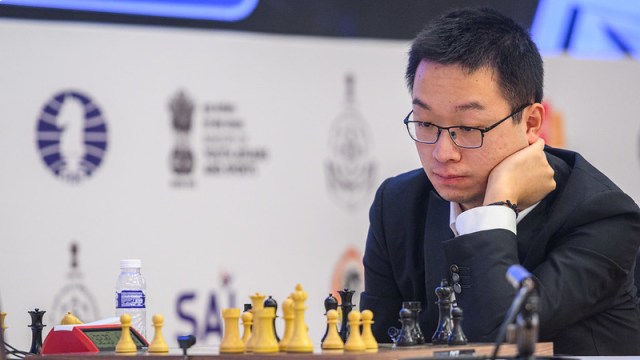FIDE World Cup: How China’s unique ecosystem has made it a chess superpower
The country banks on emergence of individual talent, which is identified and refined at long national camps
 Chinese Grandmaster Wei Yi's qualification for the 2025 FIDE Chess World Cup is an achievement of a whole system, and not a result of the efforts of one or a few individuals.(FIDE/Michal Walusza)
Chinese Grandmaster Wei Yi's qualification for the 2025 FIDE Chess World Cup is an achievement of a whole system, and not a result of the efforts of one or a few individuals.(FIDE/Michal Walusza)Chinese Grandmaster Wei Yi’s qualification for the 2025 FIDE Chess World Cup is an achievement of a whole system, and not a result of the efforts of one or a few individuals.
One of the key characters in this success story is Xu Xiangyu, the captain of China’s World Cup contingent. Wei Yi describes him as one of his closest friends, who stayed behind in India to keep him motivated throughout the tournament. But he was not alone in working behind the scenes to push China’s newest great hope forward.
China has cultivated a chess ecosystem that thrives on the emergence of individual talent, yet does things its own way.
“There is strong support not just for Wei Yi, but also for players like Yu Yangyi and Bu Xiangzhi. Just before the World Cup, all the top players, including Ding Liren, were called for a national camp where we trained together and worked on opening lines,” Xu Xiangyu told The Indian Express.
The Chinese chess machinery functions as a well-oiled machine. Similar to their badminton system, China relies heavily on its national camp structure, which operates on a bottom-up approach. These large-scale camps prioritise identifying and nurturing talent from the ground up.
All elite players, including former World Champion Ding Liren, participate. For weeks, they work, train and share creative ideas, in addition to playing hundreds of practice games against one another. It is at these camps that the next generation of skilled, up-and-coming talents are identified and honed.
In India, the rise of prodigies like D Gukesh, R Praggnanandhaa, Arjun Erigaisi, Nihal Sarin, Divya Deshmukh and R. Vaishali is backed by individual, player-specific set-ups, with each having their own personal training team.
While this decentralised structure is highly individualistic, it has consistently provided good results. A youngest-ever World Champion and an Olympiad gold across categories are clear indicators that this model works effectively for India, with a system similar to that in the United States.
The case is different for Uzbekistan, which seemingly follows a centralised model more akin to China’s than India’s. Although the rise of Uzbek talent has overlapped in many ways with India’s, their system is notably backed by the government. And while these young players are fierce opponents over the board, they share a strong camaraderie, often training together in national camps.
Dominant force
China had already completed a historic sweep of all major chess titles, having won the Olympiad gold in both the open and women’s categories, and claimed the World Championships with Ju Wenjun and Ding Liren.
But following Ding Liren’s defeat to Gukesh in the 2024 World Championship, the mantle was passed to Wei Yi, who has now qualified for the Candidates. Should he win the 8-player event in Cyprus in 2026, he would find himself in a position to challenge Gukesh’s Classical throne.
Xu Xiangyu clarifies that he is not Wei Yi’s second or trainer, nor formally part of his team. His role is like that of India’s N. Srinath, overseeing the entire contingent rather than a single player.
“I give him (Wei Yi) suggestions only if he asks for them. My primary role is to make sure everything is in order. I’m not a professional assistant for him,” he said.
Having previously served as a second for Tan Zhongyi in her World Championship match against Ju Wenjun, Xu Xiangyu was well prepared for this responsibility.
Although Wei Yi prefers to prepare in isolation, that hasn’t prevented him from forming strong bonds with fellow players who continue to support each other when needed.
“Wei Yi, me, Grandmasters Bai Jinshi, Peng Xiongjian and Li Di… the five of us are a very close group. We hang out a lot back in China, sometimes discuss games, and explore new ideas. We’re all in the same age group, which probably helps. Growing up, we all watched Ding become one of the world’s best,” Xu Xiangyu said.
































